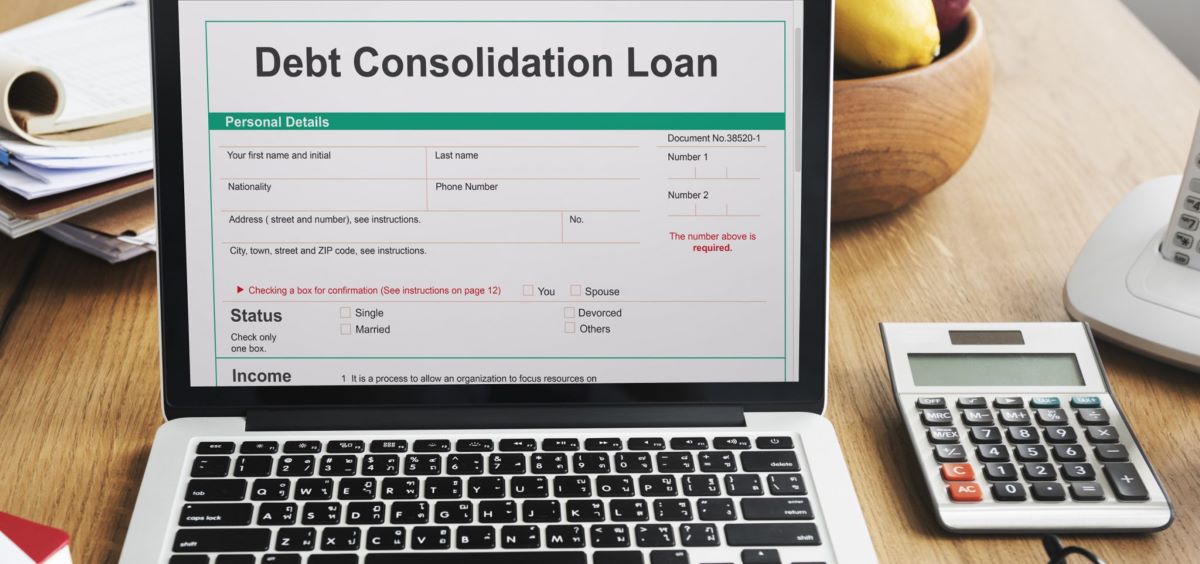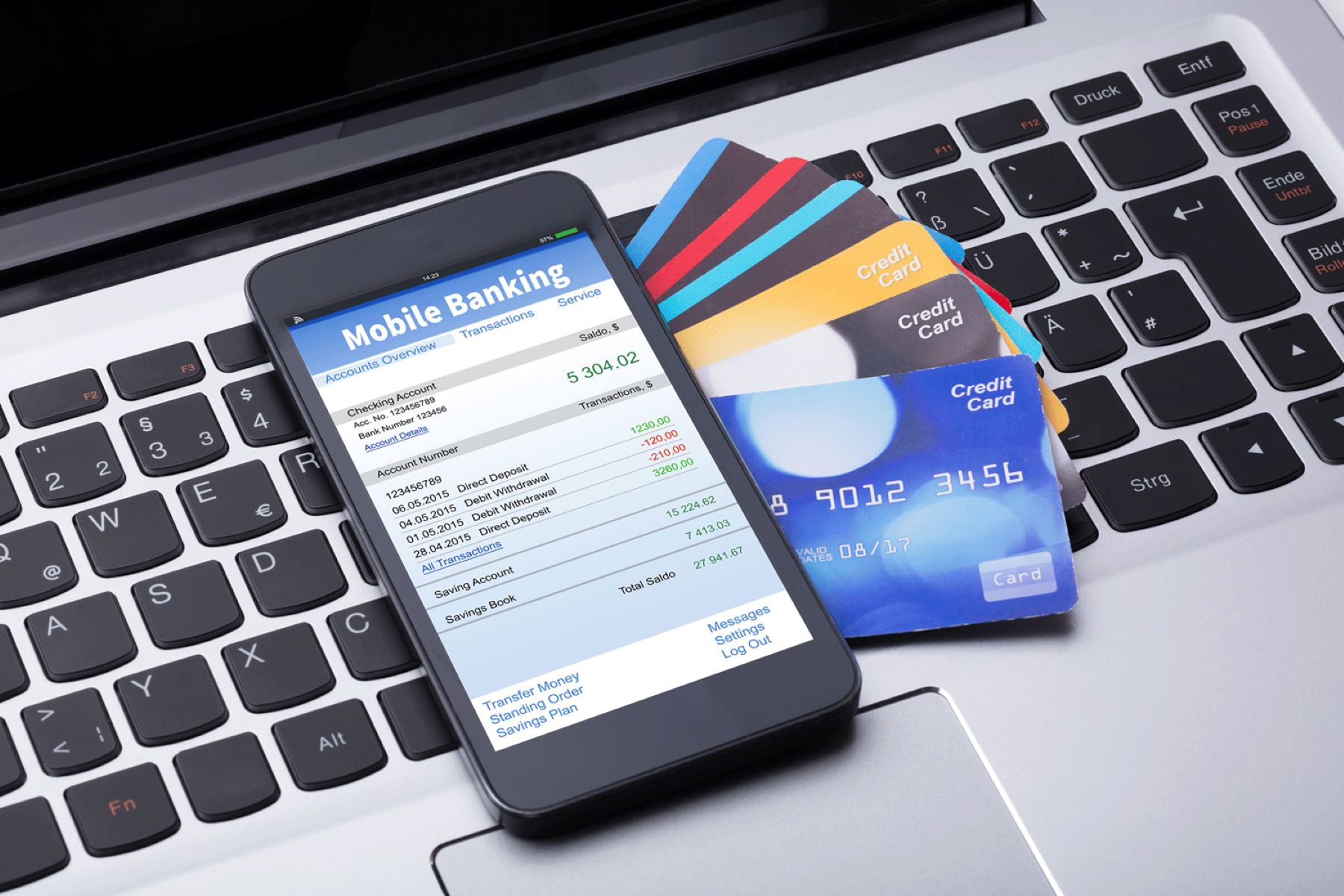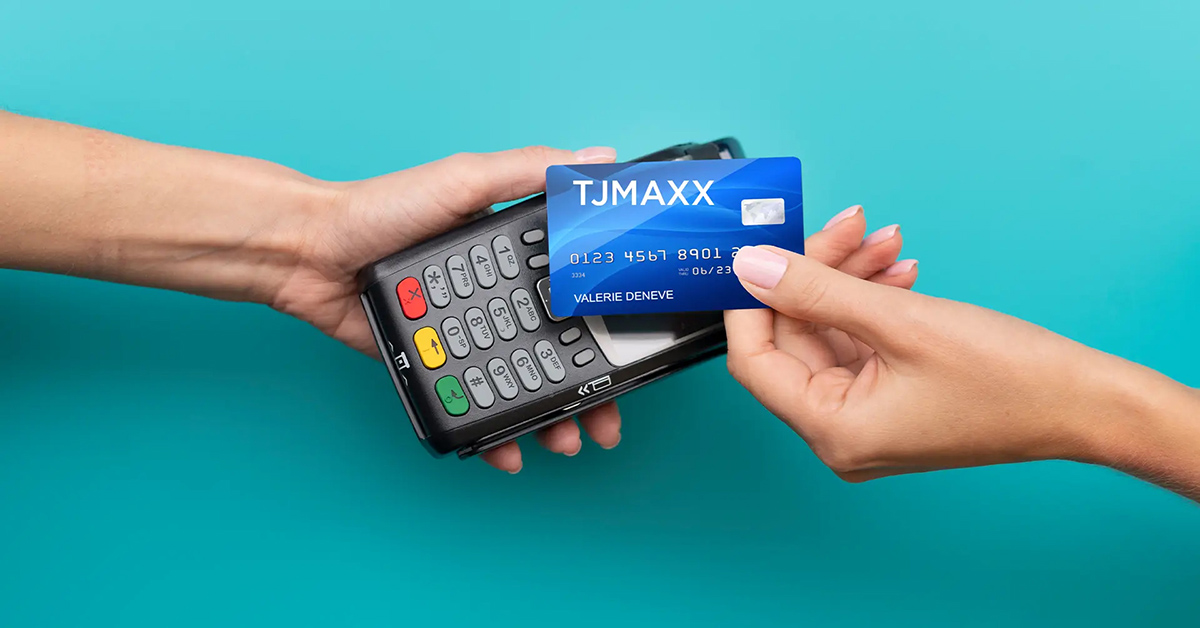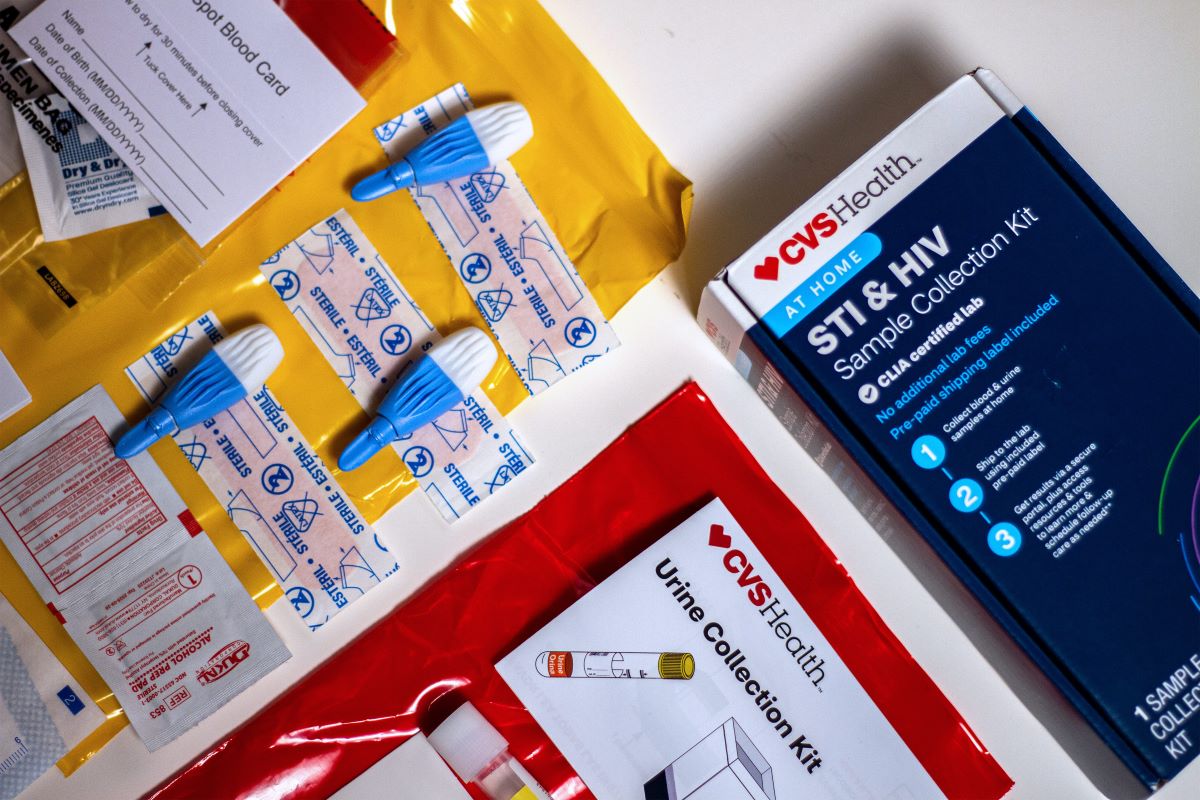

Finance
Why Can’t I Check My Credit
Modified: March 1, 2024
Looking for answers to why you can't check your credit? Explore finance options and learn how to overcome credit check obstacles.
(Many of the links in this article redirect to a specific reviewed product. Your purchase of these products through affiliate links helps to generate commission for LiveWell, at no extra cost. Learn more)
Table of Contents
- Introduction
- The Importance of Checking Your Credit
- Common Reasons for Being Unable to Check Your Credit
- Lack of Credit History
- Errors on Your Credit Report
- Identity Theft and Fraudulent Activity
- Issues with Credit Reporting Agencies
- Steps to Resolve Credit Checking Issues
- Contacting Credit Reporting Agencies
- Disputing Errors on Your Credit Report
- Protecting Yourself from Identity Theft
- Conclusion
Introduction
Checking your credit is an important part of managing your financial health. Your credit history and credit score play a significant role in your ability to access loans, credit cards, and even housing. However, there may be times when you encounter difficulties in checking your credit, leaving you wondering, “Why can’t I check my credit?” In this article, we will explore the common reasons behind this issue and provide steps to help you resolve it.
Having a clear understanding of your credit status is crucial for several reasons. Firstly, it allows you to monitor your financial activities and identify any suspicious or unauthorized transactions. Secondly, it helps you spot errors or inaccuracies in your credit report that may be negatively impacting your credit score. Lastly, regular credit checks enable you to stay informed about your credit standing and take necessary steps to improve it.
However, despite the importance of credit checks, you may encounter obstacles preventing you from accessing your credit information. These roadblocks could be due to various factors, such as a lack of credit history, errors on your credit report, identity theft, or issues with credit reporting agencies. Understanding the root cause of these problems is essential for finding effective solutions.
In the following sections, we will delve into the common reasons for being unable to check your credit and provide guidance on how to resolve these issues. Whether you are a first-time credit user or an experienced borrower, this article aims to equip you with the knowledge and tools necessary to navigate any obstacles that may arise when checking your credit.
The Importance of Checking Your Credit
Checking your credit regularly is a crucial step towards financial empowerment and responsibility. Your credit history and credit score provide a snapshot of your financial health, impacting your ability to access credit, secure favorable interest rates, and make important financial decisions. Here are a few key reasons why checking your credit is essential:
- Monitoring Financial Health: Regularly checking your credit allows you to gain insight into your financial standing and how lenders perceive you. Your credit report provides information about your borrowing habits, repayment history, and outstanding debts. It helps you assess your overall financial health and identify areas for improvement.
- Identifying Errors and Inaccuracies: Mistakes can happen, including errors or inaccuracies on your credit report. These errors can impact your credit score and potentially lead to a higher interest rate or even a loan denial. By closely reviewing your credit report, you can identify and dispute any inaccuracies, ensuring that your credit history is accurately represented.
- Guarding Against Identity Theft: Checking your credit regularly allows you to detect any signs of fraudulent activity or identity theft. Unusual account openings, unfamiliar credit inquiries, or unrecognized debts could be red flags indicating that your identity has been compromised. By catching these issues early, you can take immediate action to minimize the damage and protect your credit.
- Taking Control of Your Credit Score: Your credit score plays a pivotal role in determining your creditworthiness. By monitoring your credit, you can track your progress and take measures to improve your score. Paying bills on time, reducing credit card balances, and maintaining a healthy credit utilization rate are just a few ways to proactively manage and boost your credit score.
- Preparing for Major Financial Decisions: Whether you’re planning to buy a home, finance a car, or apply for a business loan, checking your credit beforehand gives you a clearer understanding of your financial position. This information enables you to make more informed decisions, negotiate favorable terms, and potentially save money in the long run.
Remember, your credit profile is a reflection of your financial responsibility, and it can impact various aspects of your life. By regularly checking your credit, you stay informed, take proactive steps to protect your financial well-being, and position yourself for better financial opportunities in the future.
Common Reasons for Being Unable to Check Your Credit
There are several common reasons why you may encounter difficulties when trying to check your credit. Understanding these reasons can help you identify the root cause of the issue and take appropriate steps to resolve it. Here are some of the most prevalent reasons for being unable to check your credit:
- Lack of Credit History: If you have limited or no credit history, it may be challenging to obtain a credit report. Lenders and credit bureaus rely on a history of credit accounts and payment behavior to generate a credit report. If you are new to credit or have not yet established a sufficient credit history, you may encounter difficulties obtaining your credit report from traditional sources.
- Errors on Your Credit Report: Inaccuracies or errors on your credit report can hinder your ability to access it. These errors can range from incorrect personal information to erroneous account details and payment records. If your credit report contains mistakes, the credit reporting agencies may need to correct them before you can successfully obtain your credit report.
- Identity Theft and Fraudulent Activity: If you suspect that your identity has been stolen or that there has been fraudulent activity on your credit accounts, you may face obstacles when trying to check your credit. In such cases, credit bureaus may temporarily limit access to your credit information to prevent further unauthorized activity.
- Issues with Credit Reporting Agencies: Occasionally, there may be technical or administrative issues with credit reporting agencies that prevent you from accessing your credit information. These issues could be due to system maintenance, server outages, or other backend problems that hinder the retrieval of your credit report.
It is important to note that each of these reasons requires a different approach for resolution. Understanding the specific cause of your inability to check your credit will guide you in taking the necessary steps to address the issue effectively.
In the following sections, we will explore potential solutions for each of these common reasons for being unable to check your credit. By following the recommended steps, you can overcome these obstacles and gain access to your credit information, ensuring that you have the necessary insight to manage your financial health.
Lack of Credit History
Having a lack of credit history can be a common reason for being unable to check your credit. This situation often occurs for individuals who are new to credit or have not yet established a sufficient credit history. Without a credit history, traditional sources such as credit reporting agencies may not have enough information to generate a credit report for you.
If you find yourself in this situation, there are several steps you can take to address the lack of credit history:
- Open a Credit Account: To begin building your credit history, consider opening a credit account, such as a secured credit card or a small loan with a responsible lender. Making regular payments on these accounts will establish a positive credit history over time.
- Utilize a Co-Signer or Authorized User: If you have a close family member or friend with a strong credit history, you may be able to benefit from their credit by becoming an authorized user on one of their credit accounts. Alternatively, you can ask them to co-sign a loan or credit card application, which can help you establish your own credit history.
- Explore Alternative Credit Reporting Sources: While traditional credit reporting agencies may not have enough data on your credit history, some alternative credit reporting sources specialize in evaluating non-traditional credit data, such as rent payments or utility bills. Research and consider using these alternative sources to build your credit history.
- Seek Credit Builder Programs: Some financial institutions offer credit builder programs specifically designed to help individuals with limited credit history establish and strengthen their credit. These programs typically involve making regular payments into a locked account, which eventually gets released to you as a loan or credit limit.
Building and maintaining a positive credit history takes time and responsible financial behavior. By taking these proactive steps to establish a credit history, you can gradually overcome the lack of credit history hurdle and gain access to your credit information. Regularly checking your credit report once you have established credit will allow you to monitor your progress and ensure the accuracy of your credit history.
Remember, building a strong credit history is an ongoing process. Make it a habit to make timely payments, avoid excessive debt, and keep your credit utilization low. Over time, as your credit history becomes more robust, you will have better access to your credit information and enjoy the benefits of a healthy credit score.
Errors on Your Credit Report
Errors on your credit report can be a significant obstacle when trying to check your credit. These errors can range from incorrect personal information to inaccurate details about your credit accounts and payment history. When these errors occur, they can negatively impact your credit score and lead to potential difficulties in accessing your credit report. Here are steps you can take to address errors on your credit report:
- Review Your Credit Report: Start by obtaining a copy of your credit report from one of the major credit reporting agencies. Carefully review each section for any inaccuracies or discrepancies.
- Dispute Errors: If you encounter errors, such as incorrect account balances, late payments, or accounts that do not belong to you, you have the right to dispute them. Contact the credit reporting agency responsible for the error, and provide them with relevant documentation and evidence to support your claim.
- Follow the Dispute Process: Each credit reporting agency has a specific dispute process that you need to follow. This may involve submitting a written dispute letter or completing an online form. Be sure to include all necessary information and documentation to support your case.
- Monitor the Resolution: After submitting your dispute, the credit reporting agency will investigate the errors and make necessary corrections. Stay vigilant and continue to monitor your credit report to ensure that the errors are indeed resolved.
- File a Statement of Dispute: If the errors persist or if you are unsatisfied with the resolution, you have the option to file a statement of dispute. This statement will be included in your credit report and can help explain any lingering discrepancies to future lenders or creditors.
- Keep Documentation: Throughout the process, it is important to keep copies of all correspondence, dispute letters, and supporting documents. Should the errors resurface in the future, having documentation will be crucial in addressing the issue.
It is important to note that correcting errors on your credit report can take time. However, persistence and follow-up are key. Regularly checking your credit report and promptly addressing any errors will ensure the accuracy of your credit history and help you maintain a healthy credit score.
In some cases, seeking assistance from a credit repair professional may be beneficial. These professionals specialize in navigating the dispute process and can provide guidance on how to best resolve errors on your credit report.
Remember, your credit report is a crucial tool for lenders and creditors to evaluate your creditworthiness. Taking proactive steps to correct errors will help ensure that your credit report accurately reflects your financial history and enable you to access credit more smoothly in the future.
Identity Theft and Fraudulent Activity
Identity theft and fraudulent activity can be significant barriers when it comes to checking your credit. If you suspect that your identity has been stolen or that there has been unauthorized activity on your credit accounts, it is essential to take immediate action to protect your personal information and financial well-being. Here are steps you can take to address identity theft and fraudulent activity:
- Monitor Your Accounts: Regularly monitor your bank accounts, credit card statements, and other financial accounts for any suspicious activity. Look for unfamiliar charges, withdrawals, or changes in account information that you did not authorize.
- Place a Fraud Alert: Contact one of the major credit reporting agencies to place a fraud alert on your credit file. This alert notifies potential creditors that you may be a victim of identity theft, prompting them to take extra precautions when processing new credit applications.
- Request a Credit Freeze: A credit freeze restricts access to your credit report, making it more difficult for identity thieves to open new accounts or lines of credit in your name. Contact each of the credit reporting agencies to request a credit freeze.
- File a Police Report: Report the identity theft to your local law enforcement agency. Provide them with all pertinent information, including any evidence or documentation of fraudulent activity. A police report can be crucial in resolving the issue and assisting with the recovery process.
- Contact Creditors and Financial Institutions: Reach out to your creditors, banks, and other financial institutions to inform them of the identity theft. Close any compromised accounts and open new ones with enhanced security measures.
- File an Identity Theft Report: File a complaint with the Federal Trade Commission (FTC) by completing an Identity Theft Report. This report serves as an official record of the identity theft and can provide additional protection and assistance in resolving the issue.
- Work with Credit Reporting Agencies: Keep open lines of communication with the credit reporting agencies throughout the process. Provide them with copies of your police report and any other relevant documentation to support your case.
- Keep a Record: Document all interactions, correspondence, and steps taken to resolve the identity theft. This documentation will be valuable should you need to provide evidence or follow up on the progress of your case.
Resolving identity theft can be a complex and time-consuming process. It is essential to act quickly and diligently to minimize the potential damage. Consider seeking guidance from identity theft resolution services or consulting with legal professionals specializing in identity theft cases for expert assistance.
Remember, protecting your personal information and financial security is paramount. By promptly addressing identity theft and taking the necessary steps to rectify the situation, you can regain control over your credit and prevent further unauthorized activity.
Issues with Credit Reporting Agencies
Occasionally, you may encounter issues with credit reporting agencies that prevent you from accessing your credit information. These issues can be frustrating, but there are steps you can take to address them. Here are some common problems you may face and how to resolve them:
- Technical Glitches or Maintenance: Credit reporting agencies may experience technical glitches or undergo scheduled maintenance that temporarily affects their services. If you are unable to check your credit due to such issues, wait for some time and try again later. You can also check the credit reporting agency’s website or contact their customer service for any updates or guidance.
- Server Outages or Connectivity Problems: Sometimes, credit reporting agency servers may experience outages or connectivity issues. If you are facing difficulties accessing your credit information, ensure that your internet connection is stable and try accessing the website at a different time. If the problem persists, contact the credit reporting agency’s customer service for assistance.
- Incorrect Contact Information: It is possible that the contact information associated with your credit report is outdated or incorrect. This can lead to difficulties in accessing your credit information. Verify that you are using the correct contact information for the credit reporting agency and update it if necessary. Check their website or contact their customer service for the most accurate and up-to-date contact details.
- Authentication and Security Measures: Credit reporting agencies have stringent security measures in place to protect your credit information. If you encounter difficulties accessing your credit report, ensure that you are providing the correct verification information during the authentication process. Double-check the details you are entering, such as your social security number or previous addresses, to ensure accuracy.
- Administrative Errors: Mistakes can occur on the credit reporting agency’s end, such as clerical errors or database issues. If you suspect that there is an administrative error preventing you from accessing your credit information, reach out to the credit reporting agency’s customer service to report the issue. Provide them with as much detail as possible to aid in resolving the problem.
If you have tried these steps and are still unable to access your credit information or resolve the issue, you may need to escalate the matter further. Consider filing a complaint with the Consumer Financial Protection Bureau (CFPB) or seeking legal advice to address the issue with the credit reporting agency.
Remember, issues with credit reporting agencies can be temporary and often have solutions. Patience and persistence are key to resolving these obstacles and regaining access to your credit information. Regularly checking your credit report is essential for maintaining your financial well-being, so it’s important to address any issues promptly.
Steps to Resolve Credit Checking Issues
Encountering issues when trying to check your credit can be frustrating, but there are steps you can take to resolve these problems. By following these steps, you can address the underlying causes of the credit checking issues and regain access to your credit information. Here are some recommended steps to resolve credit checking issues:
- Contact Credit Reporting Agencies: Reach out to the major credit reporting agencies—Equifax, Experian, and TransUnion—to inquire about the specific issue you are facing. Their customer service representatives can provide guidance, answer questions, and help troubleshoot the problem.
- Verify Your Identity: Credit reporting agencies have strict identity verification protocols in place to protect your personal information. Ensure that you are providing accurate and up-to-date information during the authentication process. Double-check the details you are entering, such as your social security number, date of birth, and previous addresses.
- Dispute Errors on Your Credit Report: If you encounter errors on your credit report that may be hindering your ability to access it, follow the steps outlined earlier in this article to dispute the inaccuracies. Contact the credit reporting agency and provide them with appropriate documentation to support your claim.
- Consider Credit Monitoring Services: Credit monitoring services can help you stay informed about changes to your credit report and alert you to any suspicious activity. These services provide an added layer of protection, allowing you to address any issues promptly.
- Monitor Your Accounts and Transactions: Regularly review your bank statements, credit card bills, and other financial accounts for any unauthorized transactions or signs of fraudulent activity. Report any suspicious activity to your financial institutions immediately.
- Be Proactive in Protecting Your Identity: Take measures to protect your personal information and reduce the risk of identity theft. Use strong and unique passwords for your online accounts, be cautious when sharing personal information, and consider freezing your credit or placing fraud alerts to prevent unauthorized access.
- Seek Professional Assistance if Needed: If you have exhausted all available options and are still unable to resolve the credit checking issues, consider seeking assistance from credit repair professionals or legal experts specializing in credit issues. They can provide guidance tailored to your specific situation.
Remember, resolving credit checking issues requires patience and proactive action. By following these steps and staying vigilant, you can address the underlying causes and regain access to your credit information. Regularly checking your credit is essential for maintaining financial health and making informed decisions about your creditworthiness.
Lastly, it is crucial to continue monitoring your credit regularly even after resolving any issues. This will allow you to stay on top of your credit status, detect any potential issues early on, and take necessary actions to protect your financial well-being.
Contacting Credit Reporting Agencies
When you encounter issues with checking your credit, one of the key steps to resolving the problem is to contact the credit reporting agencies directly. The major credit reporting agencies – Equifax, Experian, and TransUnion – are responsible for compiling and maintaining your credit information. Here are some important steps to take when contacting credit reporting agencies:
- Identify the Issue: Before reaching out to the credit reporting agencies, identify the specific issue you are facing. Is it a technical problem, an error on your credit report, or are you suspecting fraudulent activity? Clarify the issue so you can communicate it clearly when you contact the agencies.
- Gather Relevant Information: Collect any pertinent information related to the issue you are experiencing. This may include your personal details, account information, documentation of errors or discrepancies, or any other supporting evidence. Having this information on hand will help streamline the process and increase the chances of a successful resolution.
- Contact the Credit Reporting Agencies: Reach out to the credit reporting agencies directly to address your issue. You can contact them via phone, email, or by submitting a request through their official websites. Be prepared to provide the necessary information and explain the problem clearly and concisely.
- Document All Communications: Keep a record of all interactions and communications with the credit reporting agencies. Take note of the date, time, and the names of the individuals you speak with or correspond with. This documentation will be valuable to reference later if needed.
- Follow Up Regularly: If your issue is not resolved immediately, it is important to follow up with the credit reporting agencies regularly. Stay proactive and persistent. Ask for updates on the progress of your case and request a timeframe for resolution if possible. This demonstrates your commitment to resolving the issue and can help expedite the process.
- Consider Escalating the Issue: If you have attempted to resolve the issue with the credit reporting agencies and are not getting a satisfactory resolution, you may need to escalate the matter. File a complaint with relevant consumer protection agencies, such as the Consumer Financial Protection Bureau, and seek legal advice if necessary.
When reaching out to the credit reporting agencies, remain calm and professional, even if you are frustrated with the situation. Clearly state your concerns, provide the supporting information, and be prepared to provide additional documentation or evidence if requested. Communication and persistence are key to resolving credit checking issues with the credit reporting agencies.
Remember, the credit reporting agencies have a responsibility to ensure the accuracy and privacy of your credit information. By actively engaging with them and providing the necessary details, you increase the likelihood of resolving the issue and gaining access to your credit information.
Disputing Errors on Your Credit Report
When you come across errors on your credit report, it is crucial to take prompt action to dispute and correct them. Inaccurate information can have a significant impact on your creditworthiness and financial standing. Here are the key steps to effectively dispute errors on your credit report:
- Review Your Credit Report: Obtain a copy of your credit report from one of the major credit reporting agencies – Equifax, Experian, or TransUnion. Carefully review each section, paying close attention to personal information, credit accounts, payment history, and any discrepancies or inaccuracies.
- Document the Errors: Make a detailed note of any errors you identify on your credit report. Include the specific information that is incorrect and gather any supporting documentation, such as billing statements, payment records, or correspondence with creditors.
- Submit a Dispute: Contact the credit reporting agency directly to initiate the dispute process. You can typically do this online, by phone, or by mail. Clearly state the inaccuracies you identified, provide the necessary details, and attach any relevant supporting documentation.
- Communicate with Creditors: Notify the creditors associated with the disputed information about the inaccuracies in your credit report. Provide them with the same documentation you submitted to the credit reporting agency. They are responsible for investigating the disputed items and updating the credit reporting agencies accordingly.
- Follow the Dispute Timeline: The credit reporting agencies are required to investigate your dispute within a certain timeframe (usually 30-45 days). Monitor your credit report during this period and stay in touch with both the credit reporting agency and the creditors to ensure the progress of the investigation.
- Review the Updated Credit Report: Once the investigation is complete, the credit reporting agency will provide you with an updated credit report. Carefully review it to verify that the errors have been rectified. The credit reporting agency will also send you a written notice with the investigation results and any changes made to your credit report.
- Dispute Resolution: If the credit reporting agency does not correct the errors or you are unsatisfied with the outcome, you have the right to file a statement of dispute. This statement will be included in your credit report and can help explain any remaining discrepancies to future lenders or creditors.
- Maintain Documentation: Throughout the dispute process, keep copies of all correspondence, dispute letters, and supporting documents. These records are vital if you need to provide evidence or follow up on the progress of your dispute.
Remember, disputing errors on your credit report can take time and requires persistence. Regularly monitor your credit report even after resolving the initial errors to ensure their accuracy and to address any future discrepancies promptly.
If you find it challenging to navigate the dispute process on your own, you can seek assistance from credit repair companies or credit counseling services. These professionals specialize in guiding individuals through the dispute process and can provide valuable support.
By taking action and disputing errors on your credit report, you can ensure the accuracy of your credit information and maintain a strong credit profile.
Protecting Yourself from Identity Theft
Identity theft is a serious crime that can have severe consequences for your financial well-being and personal life. Taking proactive steps to protect yourself from identity theft is essential in today’s digital age. Here are some important measures you can take to safeguard your personal information:
- Monitor Your Accounts: Regularly review your bank statements, credit card bills, and other financial statements for any unauthorized transactions. Report any suspicious or unfamiliar activity to your financial institution immediately.
- Strengthen Your Passwords: Use strong, unique passwords for your online accounts. Avoid using easily guessable information, such as birthdays or sequential numbers. Consider using a password manager to securely store and generate strong passwords.
- Be Wary of Phishing Attempts: Be cautious when responding to emails, messages, or phone calls asking for personal information. Legitimate companies would never request sensitive information via unsolicited communications. Verify the authenticity of the source before providing any personal details.
- Secure Your Physical Documents: Keep important documents, such as social security cards, passports, and financial statements, in a safe and secure location. Shred any papers that contain sensitive information before disposing of them.
- Protect Personal Information Online: When sharing personal information online, ensure that you are on a secure website with encrypted connections. Look for “https” and a lock icon in the browser address bar as indications of a secure connection.
- Be Careful with Social Media: Limit the personal information you share on social media platforms. Avoid posting details such as your full date of birth, address, or vacation plans, as these can be used by identity thieves to piece together your identity.
- Check Your Credit Regularly: Monitor your credit report regularly to detect any unauthorized activity or accounts opened in your name. You can request a free credit report annually from each of the major credit reporting agencies.
- Consider Freezing Your Credit: A credit freeze restricts access to your credit report, making it more difficult for identity thieves to open new accounts in your name. Contact each of the credit reporting agencies to request a credit freeze.
- Use Antivirus and Firewall Protection: Install reputable antivirus software on your devices and keep them updated. Use a firewall to protect your network and prevent unauthorized access to your devices and personal information.
- Be Cautious with Public Wi-Fi: Public Wi-Fi networks may not be secure, making it easier for hackers to intercept your information. Avoid accessing sensitive accounts or sharing personal information when connected to public Wi-Fi.
By implementing these proactive measures, you can significantly reduce the risk of falling victim to identity theft. Remaining vigilant and staying informed about the latest identity theft techniques can also help you stay one step ahead of potential threats.
If you suspect that your identity has been compromised, immediately contact your financial institution, credit reporting agencies, and local law enforcement. Taking swift action is crucial in minimizing the damage caused by identity theft.
Remember, protecting your personal information is an ongoing effort. By adopting these practices and staying vigilant, you can safeguard your identity and reduce the risk of falling victim to identity theft.
Conclusion
Checking your credit is a vital aspect of managing your financial health. It allows you to monitor your credit history, identify errors, and protect yourself from identity theft. However, there may be times when you encounter difficulties in checking your credit. By understanding the common reasons behind credit checking issues and following the steps outlined in this article, you can navigate through these challenges and regain access to your credit information.
We explored the importance of checking your credit regularly, including monitoring your financial health, identifying errors, and preparing for major financial decisions. We also discussed common reasons for being unable to check your credit, such as a lack of credit history, errors on your credit report, identity theft, and issues with credit reporting agencies.
To resolve credit checking issues, it is crucial to contact credit reporting agencies directly, dispute errors on your credit report, and take steps to protect yourself from identity theft. By following these recommendations and staying vigilant, you can better manage your financial well-being and maintain a healthy credit profile.
Remember, checking your credit is not a one-time event. It is an ongoing process that requires regular monitoring and proactive action. By taking control of your credit information and staying informed, you are empowered to make sound financial decisions and safeguard your financial future.
While addressing credit checking issues may require time and effort, the benefits of maintaining good credit are worth it. By staying proactive in managing your credit and resolving any issues that arise, you are paving the way for improved financial opportunities, lower interest rates, and a secure financial future.














